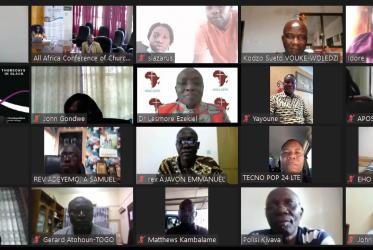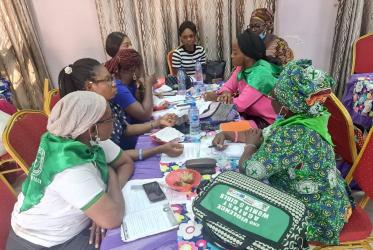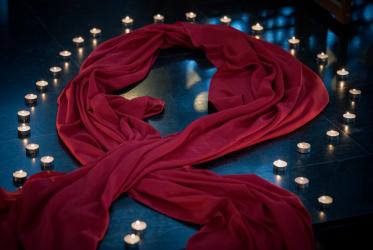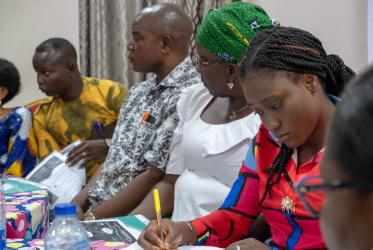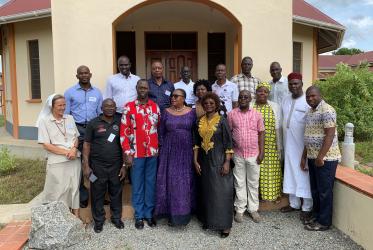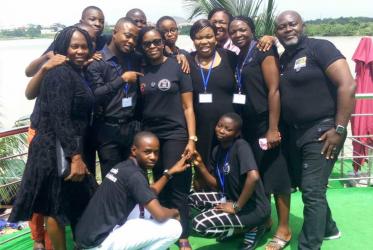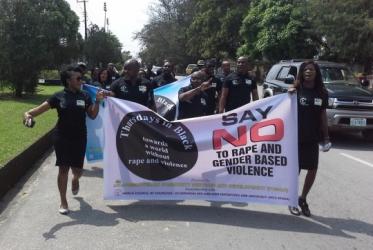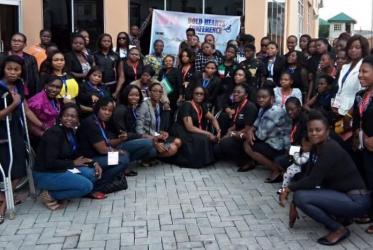Displaying 1 - 20 of 20
Nigerian churches train women and girls on human rights
20 December 2021
COVID-19 in conflict zones: “a crisis within another crisis”
27 November 2020
WCC raises alarm over crises in Nigeria
24 July 2020
In Nigeria, Thursdays in Black is flourishing
26 March 2018
In Nigeria, WCC workshops focus on human rights
04 December 2017
Religion: Way of war or path to peace?
30 June 2016
In Nigeria, end to stigma begins in the Bible
10 June 2016

